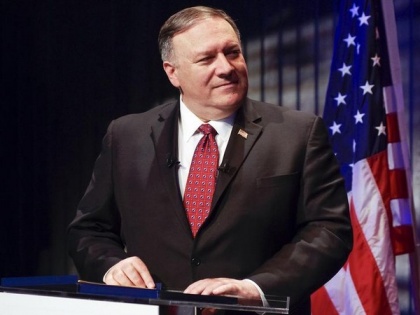US adds five sub-entities owned by Cuban military to list of sanctioned entities
By ANI | Published: November 16, 2019 05:10 AM2019-11-16T05:10:35+5:302019-11-20T12:53:40+5:30
The United States has added five sub-entities owned by the Cuban military to the list of entities with which direct financial transactions are forbidden, Secretary of State Mike Pompeo announced.

US adds five sub-entities owned by Cuban military to list of sanctioned entities
The United States has added five sub-entities owned by the Cuban military to the list of entities with which direct financial transactions are forbidden, Secretary of State Mike Pompeo announced.
"Today, I am announcing an update to the Cuba Restricted List to add five sub-entities owned by the Cuban military to the list of entities with which direct financial transactions are generally prohibited. On November 16th, Cuba commemorates Havana's 500th anniversary," he said in a statement.
"Havana was once one of the most dynamic and prosperous cities in the Americas. Far from being a celebration, this anniversary is instead a sad reminder of how the revolution continues to fail its people by commandeering Cuba's economy, rather than reforming it to fulfill Cuba's economic potential, and by forcefully silencing the voices of Cubans that continue the fight for freedom," he added.
Stressing that the United States remains committed to ensuring U.S. funds do not directly support Cuba's state security apparatus, Pompeo said it not only violates the human rights of the Cuban people, but also exports this repression to Venezuela to support the corrupt former Maduro regime.
"In accordance with the June 2017 National Security Presidential Memorandum-5, "Strengthening the Policy of the United States Toward Cuba," the U.S. government generally prohibits direct financial transactions with listed entities and sub-entities because they would disproportionately benefit the Cuban military, intelligence, and security services or personnel at the expense of the Cuban people or private enterprise in Cuba," he said.
( With inputs from ANI )
Open in app